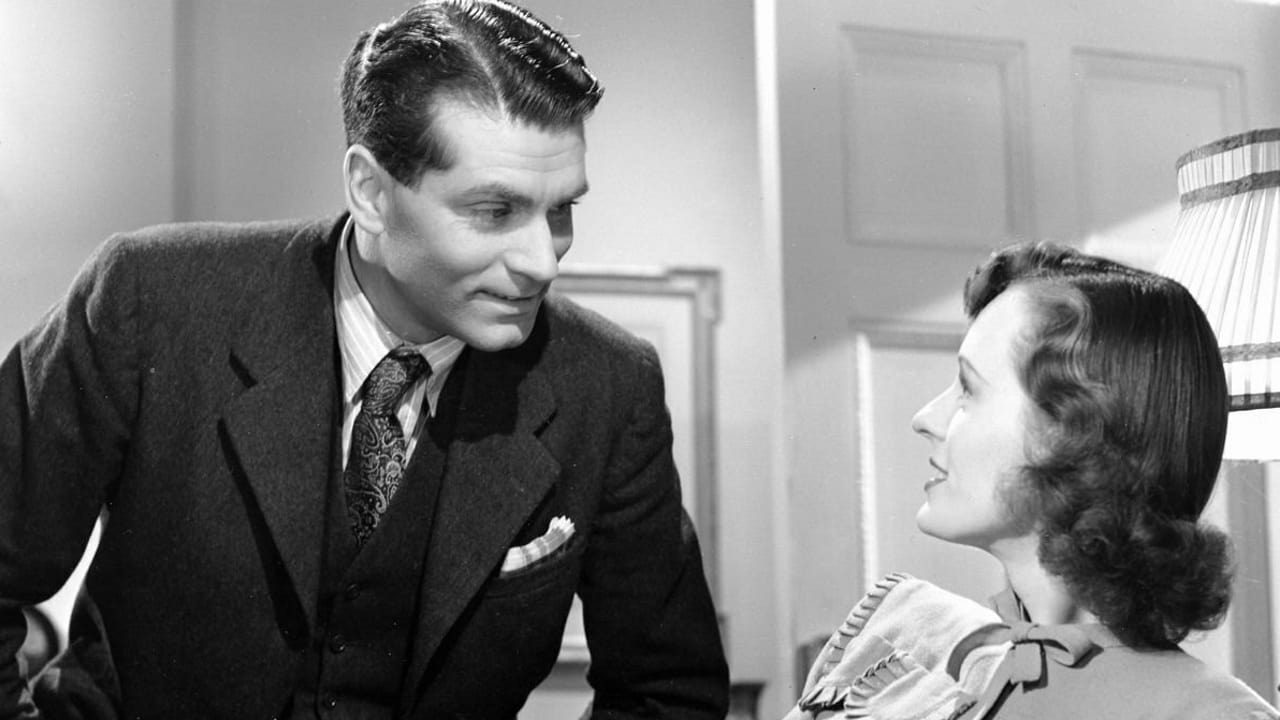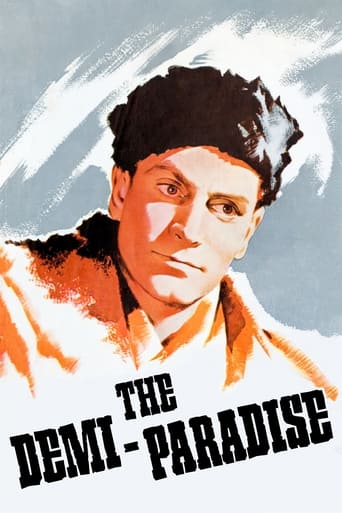

What was a spoof of the paranoia of the Commie scare following World War II now seems somewhat hypocritical considering that for the most part, the Russians were our allies during the war. Films like "Song of Russia" and "Tender Comrade" were considered communist propaganda after the war ended, but during their initial releases, film audiences weren't any the wiser to the alleged hidden meanings and attempted manipulations of the politically vulnerable to switch their allegiances to the communist party.Somehow missing on the list of alleged Communist propaganda films made during the war is this British drama which focuses on a Russian engineer (Laurence Olivier) who comes to a small town in England to get a ship built with the help of the local factory. Of course, there's the initial insecurities over what side the Russians appear on in the growing conflict, the differences in culture, and Olivier's feeling that he's automatically an outsider. He befriends a beautiful British girl (Penelope Dudley-Ward) who pretty much takes him under her wing and shows him that the British aren't as priggish or humorless as he was taught to believe. In fact, the whole town comes to take him into their hearts, their eccentricities proving to him that they are indeed people filled with heart, humor and passion.There are speeches about how the British for the most part try to avoid conflict, how their on the surface stiff upper lip is really a facade they use as an inside joke against the world, and how as a community they do come together to fight for the basic rights of mankind. Olivier makes a speech towards the end of the film about how it takes a nation of humor (especially the ability to laugh at one's self) and compassion towards humanity will give the allies the side of right in the fight against an enemy who takes itself way too seriously. He isn't being facetious, pretentious and patronizing when he says this about members of a community who has adopted his Russian home town as their "sister city" but sincere and genuinely grateful for the way in which their friendship became stronger.The wonderful Margaret Rutherford is delightful as the director of a local pageant, and it is clear why the world took her to their hearts as the British Marie Dressler. Mentions of Queen Elizabeth (the Queen mother, not the current queen) reminds the audience that this is a part of our recent history, even though it seems like so much time has gone by. It also serves an important reminder that people are representatives of themselves as individuals, not just the product of a country or nationality and that judgments are based upon people's character, not a different way of growing up or lifestyle.
... View MoreDuring WWII, the American and British film industry made quite a few films that attempted to rehabilitate the perceptions about the Russian people. That's because before the war, they were the enemy, but now that the three countries were allies, the government pushed film makers to portray the Russians in very glowing terms. In the States, films like THE NORTH STAR gave a sickeningly sweet view of the Russians that were just too good to be true. THE DEMI-PARADISE is a British film that also seeks to made the Russians seem more human--more like our friends.It's interesting to see the famous actor Laurence Olivier playing Ivan Kouznetsoff--a Russian who talks to some British seamen during the war about his visit to London before the war. His accent seemed okay to me, but who am I to judge?! Anyways, the film is all told in flashback form. For the most part, Olivier's character is a bit standoffish and seems to think everything Russian is better--though this improves a bit through the course of the film. As for the Brits, they range from a few suspicious idiots to those who keep pointing out how "they are just like us". A father even wonders out loud about what a great husband Kouznetsoff would make. Talk about over-idealizing the Russians. As a result, the people in the film seem more like caricatures than real people. And as for Olivier, he seemed a bit silly--very stereotypical and broad in his portrayal.Now despite me not loving this film and disliking how unreal everyone seemed, it was a good bit better than the WWII Hollywood films that were pro-Russia. They went even further to idealize Russia--to such a point that the films are downright dumb, as no group of people is THAT wonderful and happy and full of spunk! Overall, it's an interesting curio but certainly not a film you should run out to rent.
... View MoreThis delightful romantic comedy has a situation similar to "Ninotchka" from several years earlier, but with the genders reversed: Loyal but somewhat naive Soviet apparatchik visits a Western capitalist country on serious business, is squired through the strange ways of his/her host nation by a light-hearted but likable native toward whom he/she develops romantic feelings, and alters his/her views on Soviet/West differences. Garbo and Douglas were incomparable in "Ninotchka," but Olivier, in an offbeat role for him, and Dudley Ward hold their own in this comic exploration of people's preconceived ideas about one another (the Russian assumes all English businessmen are "exploiters," the English boarders at a rooming house won't eat at the table with "one of them (a Russian communist)." Definitely worth seeing.
... View MoreGood example of the type of movies made in England during the war, to keep spirits up. The Brits never seem to engage in gung-ho war stuff: which makes for more pleasant viewing.While nowhere near the league of, say, "A Canterbury Tale", The Demi-Paradise has enough realism (of the British character) to while away a pleasant hour and a half.
... View More